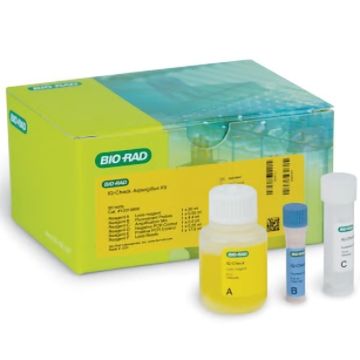The COVID-19 pandemic has brought widespread attention to the importance of testing and detecting infectious diseases. PCR (Polymerase Chain Reaction) Kits have played a critical role in detecting COVID-19 cases accurately and rapidly.

A PCR Kit is an essential tool used to amplify DNA (or RNA) from a sample, allowing detection and identification of viruses causing diseases such as COVID-19. PCR Kits come in various formats, but they usually include key components like a specific primer, Taq polymerase, and nucleotides.
PCR Kits can be used in a variety of applications such as gene expression analysis, cancer diagnostics, and forensic research. In the context of COVID-19 testing, PCR Kits can detect coronavirus RNA in a patient’s nasal and throat swabs, allowing for the identification of those infected with the virus.
How does a PCR Kit work?
PCR is a laboratory technique that allows scientists to generate large amounts of DNA (or RNA) from tiny samples. The PCR process occurs in three main stages:
1. Denaturation: The sample containing the DNA (or RNA) is heated to a high temperature, which separates the double-stranded DNA into two single strands.
2. Annealing: Once the DNA strands are separated, PCR primers (short pieces of DNA that are complementary to the sequence of interest) are introduced, allowing them to hybridize (bind) to the ends of the separated DNA.
3. Extension: In this stage, Taq polymerase (an enzyme that can add nucleotides to the primers) is added to the reaction. The Taq polymerase records the sequence of the sample by adding (polymerizing) new nucleotides to the primers, creating a new copy of the DNA strand.
By repeating these three steps, the DNA fragments can be amplified exponentially, allowing the detection of even minuscule amounts of genetic material.
Why is a PCR Kit important in COVID-19 testing?
PCR Kits have played a crucial role in the fight against COVID-19 as they allow for rapid identification of the virus in infected individuals. Without PCR Kits, identifying positive cases would have been much more difficult and inaccurate.
PCR Kits are highly specific and sensitive, ensuring that even trace amounts of viral RNA can be detected. By using PCR Kits, laboratories can identify the virus’s unique genetic sequence, ensuring that no other viruses or bacteria are mistaken for COVID-19.
PCR Kits have contributed significantly to bringing the pandemic under control by allowing widespread testing and identification of infected individuals.
In conclusion, PCR Kits are a critical tool in COVID-19 testing, allowing for accurate and rapid detection of infected individuals. By providing highly specific and sensitive results, PCR Kits have contributed significantly to the management of the pandemic. Laboratories worldwide continue to use PCR Kits in the fight against infectious diseases, ensuring that we can identify and combat outbreaks effectively.